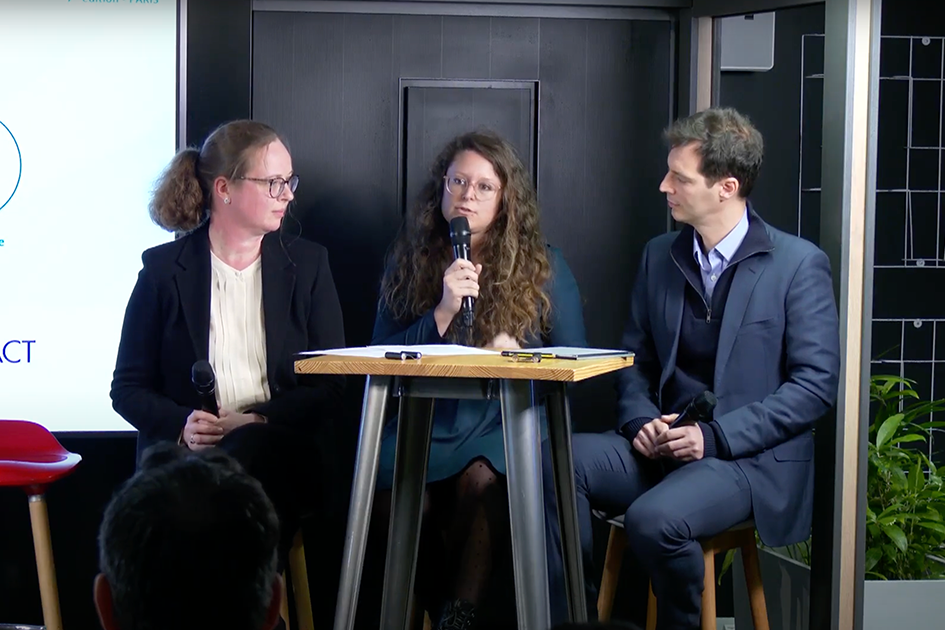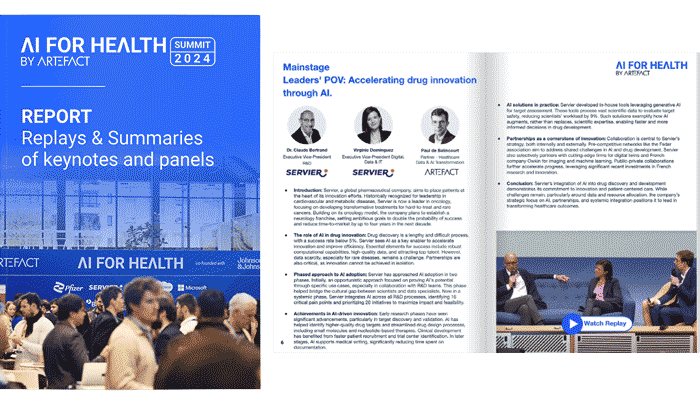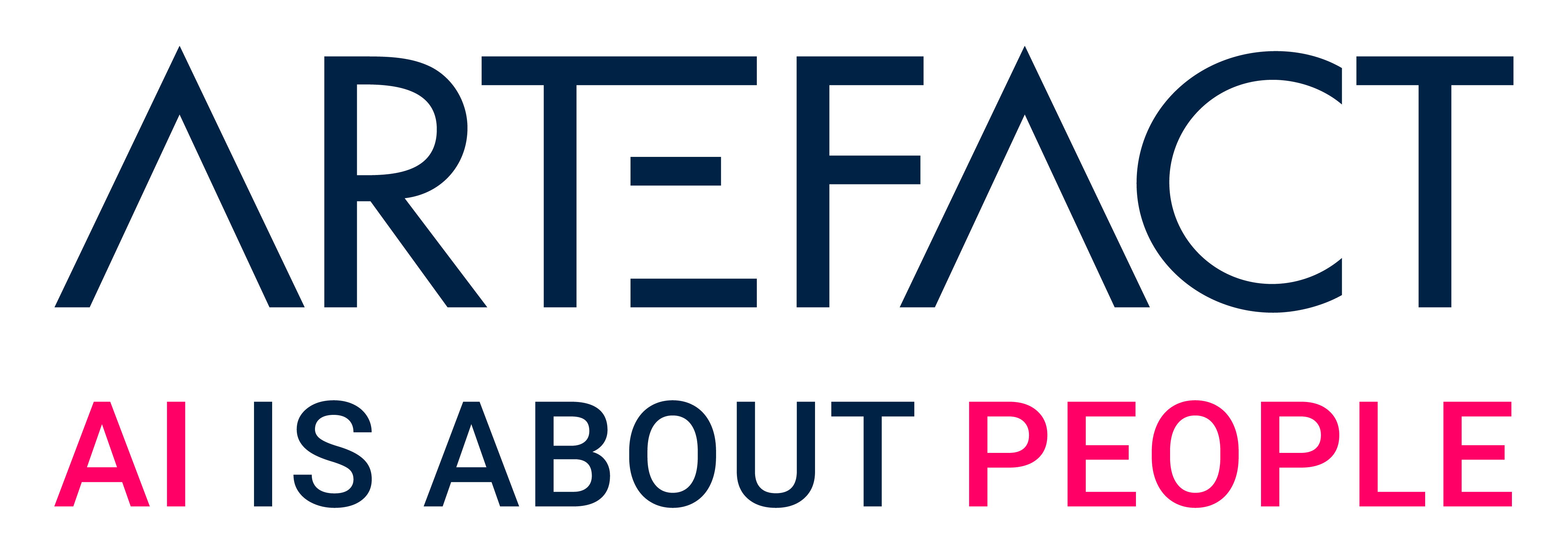Key learnings from the discussion on "Preventing frailty and AI-geing well" with Anne-Charlotte Dymny, Chief Information & Digital Officer at Clariane, and Adeline Martin, Project Coordinator at CNES MEDES.
Moderated by Thomas Filaire, Partner at Artefact.
Addressing the challenges of aging
The conversation explores how data and AI are transforming elder care, focusing on the rising demographic of seniors in France, where 20% of the population is over 60—a figure projected to grow to 33% by 2060. Anne-Charlotte Dymny, Chief Information & Digital Officer at Clariane, discusses the need to extend the years of healthy life expectancy, which currently leaves many women facing two decades of vulnerability. The discussion sets the stage for exploring how Clariane and CNES MEDES are innovating to promote healthier, more autonomous aging.
Clariane’s holistic mission
Clariane, a leading European company for elder care, has rebranded with a broader mission to serve individuals at various stages of vulnerability through nursing homes, clinics, and innovative housing solutions. Anne-Charlotte Dymny emphasizes a purpose-driven approach, integrating fairness, sustainability, and innovation. By leveraging technology and data, Clariane is shifting its focus from reactive to preventative care, aiming to intervene earlier and enhance elderly autonomy.
Research and innovation in elder care
Clariane is spearheading research in two critical areas: fall prevention and mental health. They are developing algorithms using data from over 56,000 residents to prevent falls—a leading cause of serious injuries among the elderly. In mental health, Clariane focuses on detecting depression, a condition affecting 40% of nursing home residents, by analyzing data from 1.6 million records to create tools for care staff.
Insights from space medicine
Adeline Martin, Project Coordinator at CNES MEDES, highlights the parallels between physiological changes in astronauts and aging on Earth. Space research, particularly on accelerated aging in microgravity, offers valuable insights for combating issues like osteoporosis and sarcopenia. CNES MEDES collaborates with researchers to apply findings from space medicine to elderly care, studying cellular mechanisms and developing tools for early intervention.
The role of preventative screening
Both organizations emphasize the importance of early screening to identify frailty and personalize care pathways. Through partnerships, including WHO’s ICOPE program, Clariane and CNES MEDES are piloting initiatives to screen and monitor elderly patients in clinical and home care settings. This predictive approach not only improves patient outcomes but also alleviates the burden on healthcare systems.
Scaling preventative care sustainably
The transition to widespread preventive care hinges on technology and data. However, both experts acknowledge challenges such as regulatory constraints in Europe that may stifle innovation and the need for robust data sets. CNES MEDES points to advancements like synthetic data as potential solutions, while Clariane calls for a balanced regulatory framework to protect privacy while fostering innovation.

 BLOG
BLOG




